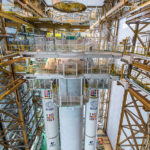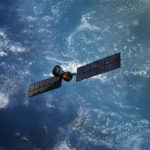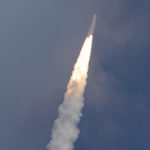The Ariane 5 for Arianespace’s December 12 year-ending flight for 2017 has completed its initial build-up at the Spaceport in French Guiana – where preparations also are moving ahead with four satellite passengers that will further expand Europe’s Galileo global navigation system once in their final orbit.
During activity in the Spaceport’s Launcher Integration Building, this heavy-lift vehicle for Arianespace Flight VA240 underwent the assembly process that began by mating its two solid propellant strap-on boosters with the main cryogenic stage. Read more…







